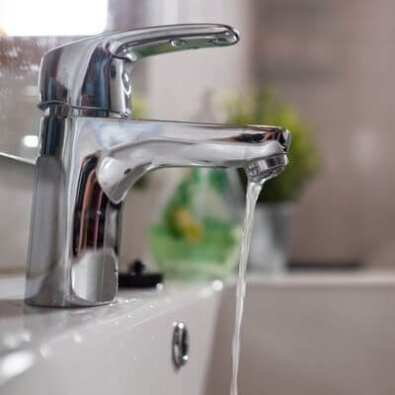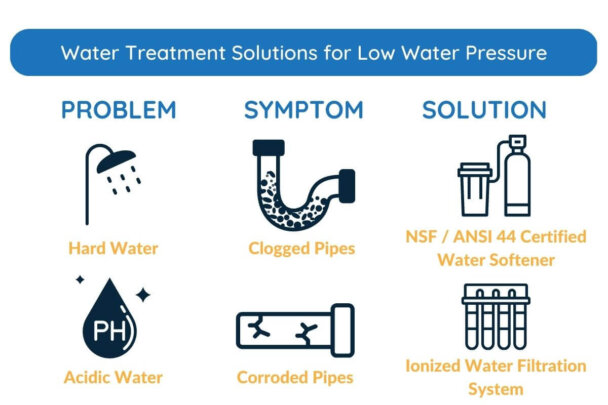Although it’s not a critical problem, low water pressure can be an annoying inconvenience in everyday life. After all, it’s hard to enjoy your morning when you’re stuck waiting for your shower to get all the shampoo out of your hair!
But we have good news for you: You don’t have to settle for that pathetic trickle anymore. In this post, we’ll tell you everything you need to know to combat all the possible causes of low water pressure in a home. By the time we’re done, you’ll be on your way to enjoying a steady flow of refreshing water again!
Keep reading to learn:
- The various causes of low water pressure in a house
- The potential health effects linked to decreased water pressure
- How to keep the pressure as high as it should be
- How Angel Water can help you fix this problem




